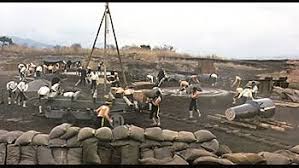The Enduring Legacy of Roman Culture
Introduction
The Roman Empire, at its height, controlled vast territories across Europe, North Africa, and the Middle East, making a significant impact on the world as we know it today. Understanding the influence of Roman culture is essential, as it has shaped various aspects of modern life including governance, architecture, engineering, and legal systems.
The Rise and Impact of Roman Culture
The Roman Empire originated in the 8th century BC, evolving from a small city-state to one of the most powerful empires in history. Roman culture encompasses not only the arts and religion but also social and political norms that have set a foundation for future civilizations. Roman innovations in architecture, such as the extensive use of concrete, allowed for the construction of vast structures like the Colosseum and aqueducts that are still studied and admired today.
Moreover, the legal frameworks established by Roman law have profoundly influenced contemporary legal systems around the world, embedding principles like the presumption of innocence and the rights of the accused into many legal traditions.
Linguistic Influence
The Latin language, originating from the Romans, serves as the foundation for the Romance languages spoken today, including Spanish, French, Italian, Portuguese, and Romanian. Latin also remains influential in the fields of science, medicine, and law, contributing to the terminology that defines these disciplines.
Cultural Bequests
Roman contributions to modern culture extend to literature, philosophy, and governance. Works by Roman authors like Virgil and Cicero continue to be cornerstones in educational curricula. Additionally, Republican ideals from Roman governance have inspired many democratic frameworks across the globe, encouraging civic participation and the rule of law.
Conclusion
The legacy of Roman culture is evident in countless aspects of contemporary life. As society continues to evolve, the lessons and innovations from Roman civilization remain relevant and serve as essential touchstones for understanding the development of Western culture. Looking forward, these influences will undoubtedly continue to shape future generations, allowing us to draw connections from historical events to our present and future societal structures.









